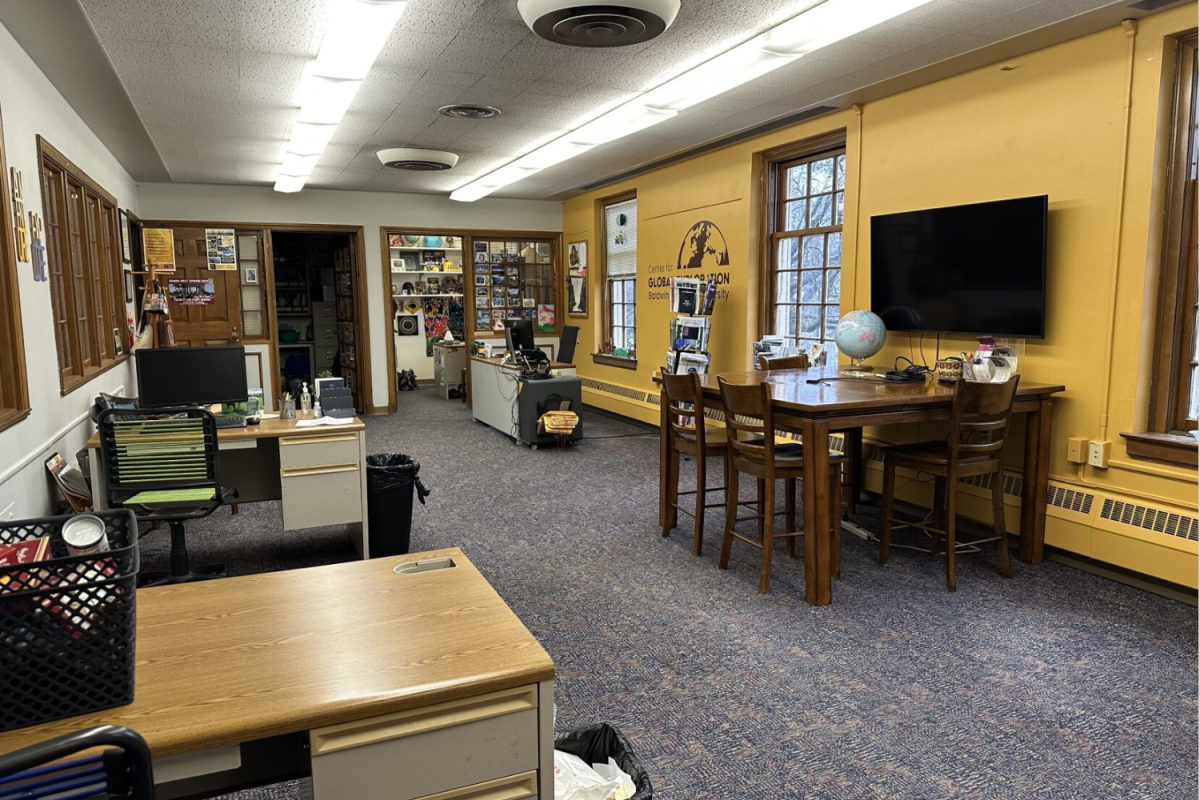Baldwin Wallace University students are increasingly favoring faculty-led study abroad programs over independent semester-long programs, mirroring a national post-pandemic trend.
According to Emily Siffert, associate director of the Center for Global Exploration, interest in independent semester-long or year-long programs has declined in recent years, with students preferring shorter, structured experiences, often lasting just a few weeks.
“With COVID and restrictions and everything, there, of course, was no study abroad taking place in 2020,” Siffert said. “And then as things started to improve, I would say maybe 2022 is when we started to see more students traveling.”
The exact reasons for this shift are unclear, but there is speculation, according to Siffert.
“We think… those were formative years in which [students] weren’t able to go out and have interactions outside of the home within school and friends,” Siffert said.
One major factor influencing students’ choices is concern over delayed graduation. However, Siffert said that this is a common “misconception.”
“Students sometimes come in with a misconception that if they take part in an independent program, it’s going to put them behind in terms of graduation,” Siffert said. “But we are very dynamic in country selection and then within the country, the university you choose, ensuring that they can meet your major.”
Additionally, students gravitate toward faculty-led programs for their structured nature, according to Siffert. Traveling with classmates and professors provides a level of comfort that independent programs may not.
Furthermore, many students worry about the costs of studying abroad, Siffert said. However, scholarships and financial aid apply for the independent programs, and there are even specific scholarships available for study abroad opportunities.
Victoria Semon, a first-year accounting student, is considering studying abroad for a full semester.
“I’m not really worried about falling behind and graduating late,” she said. “There are a lot of really good business schools out there, so I just got to find one in a place I want to travel to.”
After meeting with study abroad advisors, Semon decided she prefers the immersive experience of an independent program, saying “I want to feel like I live there, not like I’m just a tourist.”
Siffert encourages students to explore their options. She studied abroad in a faculty-led program herself and wanted to do an independent program as well.
“There’s no other time in your life where you have that flexibility,” she said. “To overcome all of those barriers or potential assumptions made about study abroad, it’s as easy as a conversation. There’s no commitment or strings tied to that conversation. We’re happy to talk about it and help make it possible for students.”































